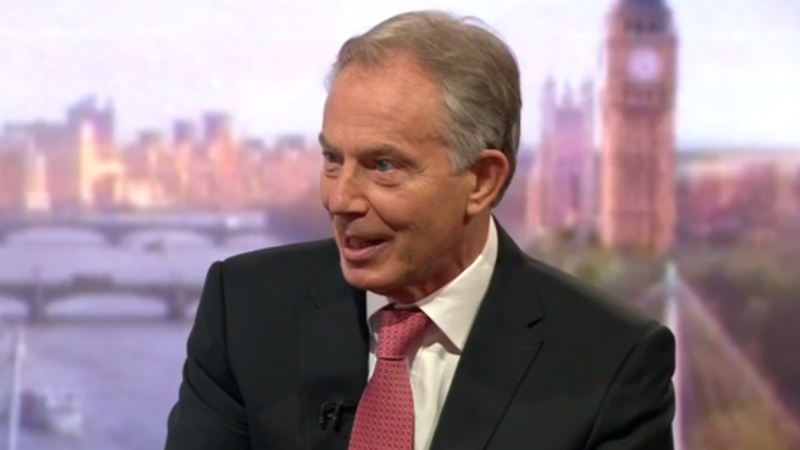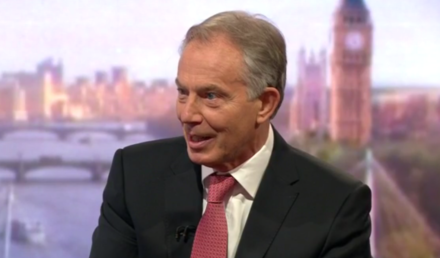

Tony Blair wants to re-enter the debate in British politics. He is looking for offices in Westminster in order that he can be near the action. The real question is what he wants to tell people? Is he the same old Blair, or a new man?
Blair must be pleased with his recent interventions. He has been persuasive on the need for a second EU referendum, while Theresa May has shown herself to be a lightweight, by boxing herself in on Brexit, as if she never conceived how difficult it would be.
Does Blair want to lecture people on Brexit, or does he have a solution? The weakness of the economy is caused by globalisation, which he advocated with great passion. Back then, if a steel plant closed due to competition from China, Tony might have made a point about seeing the developing world being dragged out of poverty.
Back in the day, the French advocated fortress Europe, whereby trade barriers would allow European countries to trade amongst themselves, without fear of cheap foreign workers. Tony argued for an open Europe, outward facing and responding to competition through flexibility. That flexibility would today manifest itself in steel workers being redeployed at McDonald’s on zero hour contracts.
The flexible employment market seemed like a good idea at the time. It meant we had low unemployment while the French rate was high. However, the modern manifestation is a young man with good GCSEs rejected for a job in favour of a Lithuanian who can’t speak English, because the Lithuanian is compliant. What does Tony say about this? More of the same?
Today’s policy response must be to increase labour regulation and empower trade unions. Even the Tories are advocating this. Can you imagine Tony Blair calling for such a policy? Or will he argue that we must tough it out, and the end to the hard times is in sight?
The issues that caused the downturn of the 1930s go back to the mass production of the Model T Ford at the end of World War One. Our current problem began with the internet around 2000. Then, the stables closed and horses were sold for meat. Now, the high streets are depressing places. In 1929 they had the Wall Street Crash, then the decade of the depressed thirties.
In 2007, the year Blair left Downing Street, we had the credit crunch. Now nearly a decade on perhaps we are nearly through it. Having said that, the thirties ended with another world war. We don’t know where May and Donald Trump will take us.
Many people on the left are hostile to any return of Blair. This can be because they fail to accept the disastrous situation Labour is in with the polls. Others don’t care about the polls and are interested only in their position in the party, rather than the party’s position in the country. For many, the sheer bitterness of Iraq rumbles on.
If Blair were to return to politics, then he would he would need to be a new Tony Blair. If it is the old Tony Blair, refusing to accept how times have changed, pushing forward the same views today as he had in 1997, then there is no point in him. Can a man as intelligent as him be so inflexible?
His reflections on Iraq suggest little capacity to adapt, but Iraq was particularly painful. The difference is that his views on the economy were not wrong at the time, they are only wrong when viewed from the space where we are right now.
No-one needs a politician who is unable to reinvent himself. If Tony Blair is to return, he would need some reinvention. Without it, I don’t think he would stand a chance.




More from LabourList
‘Labour’s quiet quest for democratic renewal’
‘Labour promised to make work pay. Now it must deliver for young people’
‘Council Tax shouldn’t punish those who have the least or those we owe the most’